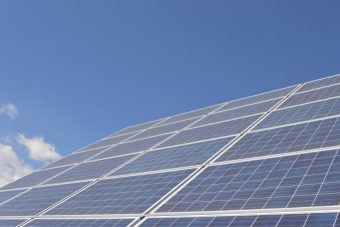
In a major boost for the Indian solar module and cell manufacturers, Energy Efficiency Services Limited recently acquired 300 megawatts of modules for multiple uses. The order has come at a time when Indian manufacturers await a decision by the government to levy anti-dumping duties on Chinese modules.
According to media reports, four Indian companies agreed to supply a total of 300 megawatts of solar modules to the Energy Efficiency Services Limited (EESL) for use at rooftop solar power systems and to power rural sub-stations for agricultural purposes.
Adani Green Energy is said to have quoted the lowest price of modules at ¢0.30/watt. Three other companies — Tata Power Solar, Bharat Heavy Electrics Limited, and Central Electronics agreed to supply the modules at the above price.
The modules will be used for setting up rooftop solar power systems at government buildings owned by the New Delhi Municipal Corporation in India’s capital city. The municipal body has identified several buildings which it plans to cover with rooftop solar power systems aggregating to 20 megawatts capacity.
Due to the lowest bids placed by the module manufacturers, the cost of generation at the NDMC rooftop solar power systems would likely be ₹4.87/kWh (7.5¢/kWh) for the first year with 3% escalation every year for 25 years. This may seem quite high compared to the utility-scale solar power tariffs but Delhi has limited solar energy resources and land availability which pushes up the cost of generation.
The modules would also be used in Maharashtra at various rural sub-stations that power the water pumps for farmers across the state. Solar power systems of 0.5 to 2 megawatts in capacity will be installed at these sub-stations and will be used to supply electricity to the water pumps. The cost of generation in this case will likely be ₹3.00/kWh (4.6¢/kWh). The Maharashtra State Electricity Distribution Company currently supplies electricity to the water pumps at ₹6.00/kWh but is unable to bill the farmers as they are exempted from paying power bills. Thus, these small solar power systems would create savings of 50% for the state’s power utility.
EESL was recently in the news for ordering 10,000 electric sedans for various departments of the Indian government. It had also issued a tender for setting up thousands of charging stations for electric vehicles.
Source: cleantechnica.com



